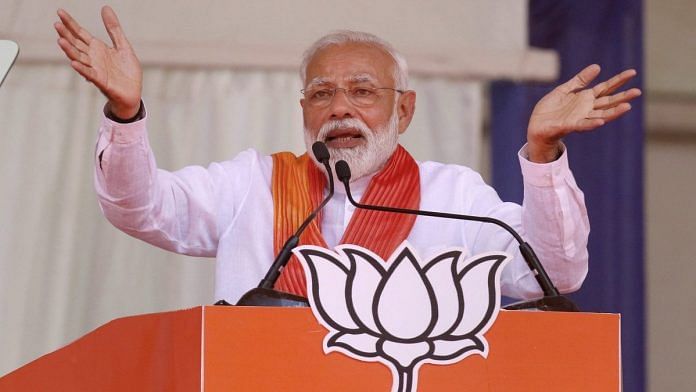Elites Unplugged? No Big Deal
Bachi Karkaria | Journalist, former editor at The Times of India
The Times of India
Karkaria drives home the point that if people thought they witnessed a “revolution” in the country with the defeat of elites (particularly, political elites) in the 2019 elections, then they are wrong because history shows the decimation of elites is not a revolution but part of a “cultural evolution”. She says, Modi is “hardly the first Demolition Ball”– she cites earlier examples of how Ramasamy Periyar took on Brahminism, Jyoti Basu launched Panchayati Raj, Mayawati challenged casteism and how Mamata finished the Left in Bengal.
She calls this league of people “outliers” turned disruptors who finally become incumbents. She believes the “old order” ultimately paves the way for “newer power blocks”. She applies this to other areas such as business, politics and the news media. Karkaria writes “New India” is a continuous process where “recharged public assertion” prevails over the “prevailing elite”.
Why minorities feel alienated in India
Hilal Ahmed | Author and associate professor at the Centre for the Study of Developing Societies, Delhi,
The Hindu
Ahmed focuses on reasons for minorities to feel increasingly alienated in India. He blames it largely on the “unofficial political mechanism” of the last five years. He says expectations that the new Modi government listen to “anxieties, aspirations and imaginations” of minorities are both “morally legitimate” and “politically justifiable”.
Ahmed is critical of incidents like the Dadri lynching, and of certain BJP leaders (like Jayant Sinha) who justified the accused of such incidents, as well as those who remained silent on crimes against minorities. A climate of opposition to the general life habits of Muslims has created “anti-Muslim propaganda” which has given rise to the “imagination” of “Hindu victimhood”. He attacks PM Modi for reducing lynchings of Muslims to a “law and order problem” but concludes that if BJP is sincere in wanting to mitigate fear among minorities it must “systematically dismantle the mechanism” that has enabled this in the first place.
Neighbourhood first: Capacity needs to match the commitment
Constantino Xavier | Fellow at Brookings India, New Delhi
Hindustan Times
Xavier lauds New Delhi and PM Modi’s political leadership, for its “neighbourhood first” policy that has made elaborate efforts to reconnect with neighbouring countries. However, the “real test” will be to match its currently limited, administrative capacity to the political will to engage with its neighbours.
He suggests possible areas of improvement: expand MEA’s diplomatic cadre, give greater autonomy to the armed forces, implement economic openness by removing unnecessary bureaucratic, tariff-related hurdles. He looks to the political leadership for positive discrimination towards neighbouring countries. India should invest in “capacity-building programmes” to develop “technical sufficiency” and “institutional resilience”.
As demand slows down
Soumya Kanti Ghosh | Chief economic advisor, State Bank of India
The Indian Express
Ghosh looks at the state of economy and says a slowdown of economic growth rate for 2018-19 to 6.8 per cent and a drop in consumption expenditure are causes for concern. However, he says there is a need to stick to fiscal deficit of 3.4 per cent for FY19, despite much skepticism. The problem, he says, is that global uncertainties have compounded domestic challenges, in recent times. He lauds the government’s decision to extend the PM-KISAN scheme to all farmers considering that agriculture and allied activities grew at only 2.9 per cent compared 5.9 per cent last year. Targeting a structural deficit instead of fiscal deficit is critical, he says, adding that monetary policy support too will be necessary.
Why are Indian growth rates so volatile?
Ashima Goyal | Member, Prime Minister’s Economic Advisory Council
Business Standard
India’s GDP growth has become volatile and periods of higher growth are disappointingly short, especially after the global financial crisis, says Goyal. That growth in each successive quarter is lower than the corresponding period reflects a deepening slowdown besides policy neglect. Even as global demand revived, India’s exports remain weak. Goyal writes that since India is dependent on oil imports, there are limits to depreciation as a strategy to increase exports. Though the government took timely steps to turnaround IL&FS, RBI’s measures to address its spillover effects to the financial sector were inadequate. Now that inflation is in the target band and growth has slowed, RBI must act fast with rate cuts. “Imposing” more unnecessary growth sacrifice can lead to a political backlash, she says.
The trade war will do America more harm than good
Kaushik Basu | Professor, Cornell University and non-resident senior fellow, Brookings Institution
Mint
The world’s biggest risk is the escalating trade war between the US and China yet most commentators fail to understand the kind of effect it would have on the American and world economy, says Basu. Though US runs a wide trade deficit with China and the latter has flouted many global norms of trade, raising tariffs on Chinese goods is futile. Basu points out that analysts at Oxford Economics estimate the US GDP will fall by 0.5 percentage in 2020 — if US applies a 25 per cent tariff on all goods imports from China, and China retaliates in kind. “Higher tariffs will make those inputs more expensive or scarcer, hurting US productivity and competitiveness and taking a deep bite out of the economy’s growth potential,” he says.



